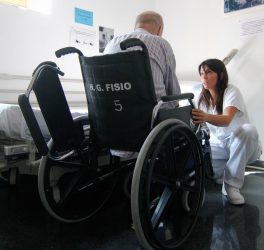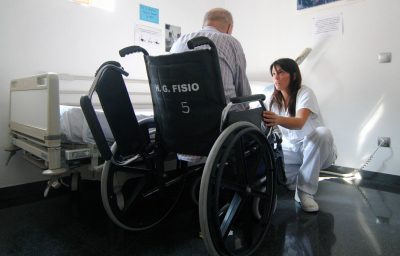
Experts in cognitive research evaluated the status of available treatments as well as promising strategies for treating cognitive deficits in multiple sclerosis. The article, “Treatment and management of cognitive dysfunction in patients with multiple sclerosis”, was published in Nature Reviews.
Cognitive dysfunction is a common, disabling symptom of multiple sclerosis, affecting two-thirds of patients. These individuals can have difficulties managing finances, performing household tasks, and functioning in the community and the workplace. Although the impact on daily life may be profound, the diagnosis and management of cognitive dysfunction in this population remains inadequate. The authors provided detailed analyses of different approaches to treatment, including cognitive rehabilitation, exercise training, and pharmacotherapy, and the important contributions of brain neuroimaging to advances in this field. The authors are John DeLuca, PhD, and Nancy Chiaravalloti, PhD, of Kessler Foundation, and Brian Sandroff, PhD, of the University of Alabama at Birmingham.
Over the past decade, research activity in cognitive rehabilitation has increased in the population with MS. There is greater emphasis on cognitive screening and assessment, and some standardized treatment protocols are available. “Evidence suggests that cognitive rehabilitation is effective in MS-related cognitive dysfunction, and may confer long-lasting effects,” said John DeLuca, PhD, senior VP of Research and Training at Kessler Foundation, and a co-author of the article. “Access to cognitive rehabilitation therapy is likely to increase as remote options for delivery become more widely accepted, such as programs for home computers and telerehabilitation services.”
Exercise training is an active area of MS research that shows promise for enhancing cognitive function and effecting positive change in the everyday lives of people living with MS. With improvements in methodology, this line of research will support consideration of exercise as the standard of care for individuals with MS. “It is critical that larger scale studies include participants with MS, including progressive MS, and target select cognitive outcomes,” Dr. DeLuca noted. To develop treatment protocols, the timing, dosage and duration of exercise need to be determined. “As studies continue to evolve, clinical applications of exercise recommendations are likely to be implemented within the next ten years,” he predicted.








